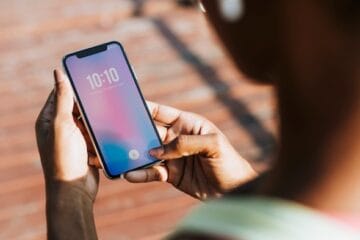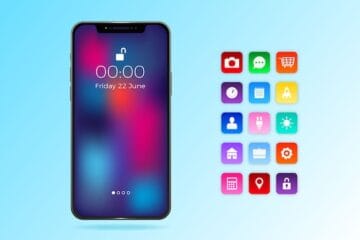All good things come to an end. Since at least 2003, when Steve Jobs unveiled the iTunes store that was to turn the iPod into a blockbuster, Apple’s new product announcements have been subjects of mass popular interest. They have provided not just a showcase for some of the most desirable consumer technology, but a glimpse of a sunny digital future that Mr Jobs’ always promised would be “magical”.
It is hard to generate that kind of excitement for the expected unveiling of the latest iPhone next week. With no fundamental changes likely, attention will be on the figurative bells and whistles, like a camera with two lenses and wireless headphones.
The latest upgrade will once again confirm the iPhone as state of the art, no doubt. But after nine years, the wow factor is fading. When BMW adds cool new accessories to its cars, the world doesn’t stop in its tracks. With little to persuade most customers to trade in their old models for the latest handset, the iPhone is not expected to do much for sales after a dip so far this year.
The lull coincides with the fifth anniversary of Tim Cook’s succession to the top job, so it is tempting to see this as a seminal moment for Apple, and a sign that the company is sorely missing Mr Jobs’ product genius. Mr Cook certainly faces a unique problem. At $155bn last year, sales of the iPhone narrowly topped the entire revenues ofGeneral Motors. Can any single personal tech product ever come close to matching that?
But this misses the wider point. A bigger iPhone overhaul is expected next year and stronger phone replacement cycles lie ahead, even if the market is maturing. More importantly, focus on the iPhone slowdown distracts attention from the bigger opportunity before Mr Cook.
The key figure here is not the number of new gadgets shipped, but the number — and the buying power — of the people who live in Apple’s universe. This year, the company has taken to talking about the 1bn phones, tablets and Macs it has sold that are in active use. Allowing for ownership of multiple devices, this is estimated to represent around 600m to 700m people.
It is one of the most enviable consumer sets in the world: a global, upmarket elite with high disposable income and strong brand loyalty. The challenges for Apple are to tie them ever more closely to its digital ecosystem — and to find more ways to monetise their attention.
Mr Jobs’ last public appearance at a new product event, only months before his death, gave an indication of how things were already changing. The iCloud may not have stirred as much excitement as Apple’s hardware, but Mr Jobs described it as a turning point in how people would relate to their digital devices. Each would link them directly to their personal data and media sitting in the cloud, in turn tying them ever closer to Apple’s ecosystem.
Machine learning is the tech industry’s next battlefront. If Apple succeeds in making all of its products “smarter”, with devices that know you and help you navigate the digital world, it will go another step towards generating digital dependence.
Mr Cook also needs to find more ways to make money beyond his blockbuster product. Selling more digital content and services has long been an undeveloped opportunity. As Apple devices become the gateway for an expanding array of media and commerce, this could become a serious — and high margin — revenue stream. When Apple first drew attention to its services revenues earlier this year, it was a PR disaster: Wall Street saw it as an attempt to deflect attention from the flagging iPhone. But services have become Apple’s second biggest revenue line.
Also, rather than a new blockbuster to rival the iPhone, the Apple universe will depend on an evolving constellation of devices and gadgets. Some will have the potential to move the corporate revenue needle more than others, but all will play a role.
Tim Cook’s first five years could be viewed as fulfilling the immediate potential of Mr Jobs’ breakthrough products — iPhone sales have more than tripled in that time and he has turned Apple from Mr Jobs’ pirate ship into a major corporation.
His next five will be about showing that Apple can master many new tricks, and ways of making money. Given its massive sales, the iPhone will be at the centre for years to come. But there is much work to be done to fulfil the potential unleashed by Mr Jobs’ magical handset.
[Source:-Financial Times]]



